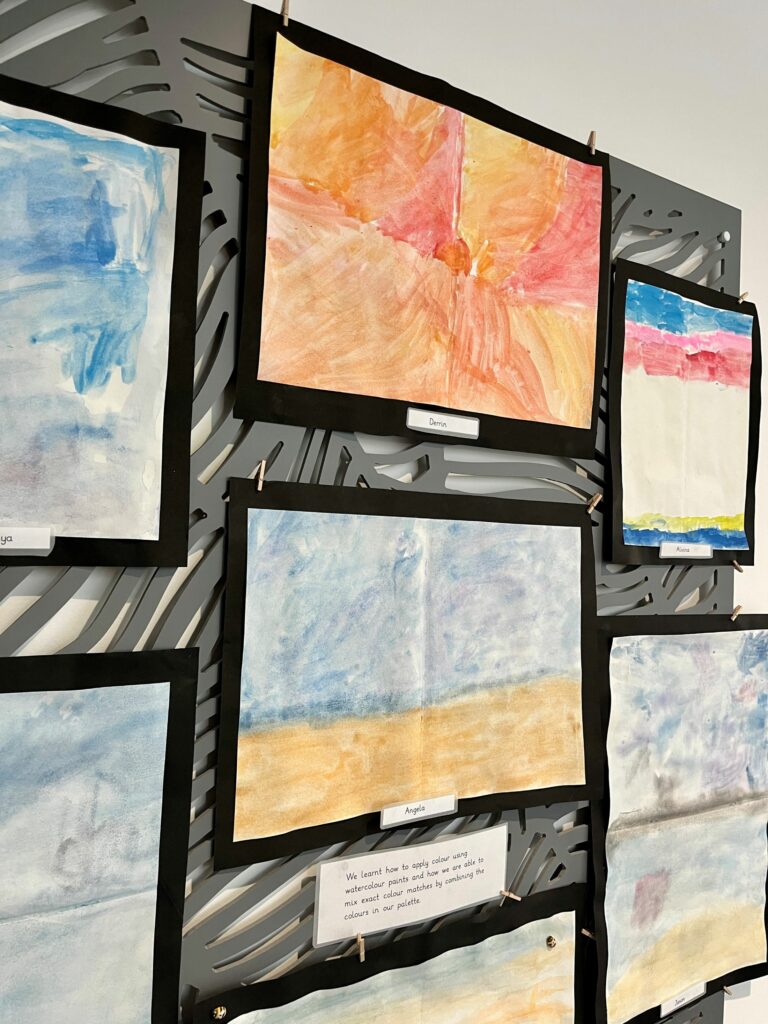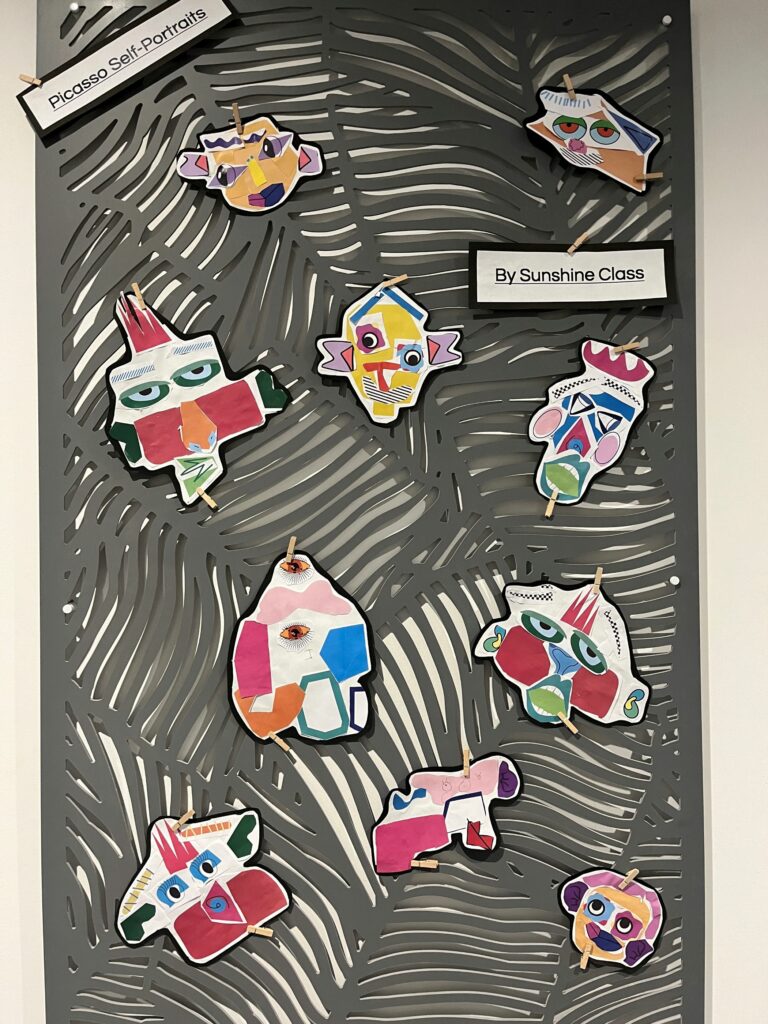Curriculum Intent
Our Curriculum Intent outlines the knowledge, skills and characteristics we want children to develop and learn throughout their time with us.
At Watling Primary School, our Art curriculum aims to foster creativity, imagination, and self-expression in our pupils. Through engaging and active learning processes, children will explore various art forms, techniques, and materials such as paint, charcoal, pencil and clay. We teach using a variety of strategies which encourage teamwork, experimentation, problem-solving and investigation. We have high aspirations and want all our pupils to achieve ambitious goals.
The curriculum is designed to develop pupils’ artistic skills, curiosity and appreciation for renowned artists, designers and architects, both contemporary and from history. We do this while maintaining a grounding in sustainability and natural arts whenever possible.
We believe in supporting children to reflect and discuss their learning, we are developing effective communicators who readily use technical language and vocabulary and are confident to express their opinions.
By encouraging experimentation, individuality and personal expression, we aim to nurture a lifelong love for art and creativity in our children.
Curriculum Implementation
Our Curriculum Implementation explains what we will do and how we will do it, to ensure that children learn and achieve what we intend them to.
Our approach to the teaching and learning of Art includes the following:
- Three distinct units taught during the academic year.
- Timetabled one-hour lesson each week, including use of the STEAM Room and Arts Studio.
- Lessons planned using progression maps and curriculum end points.
- Lesson objectives linked to Watling Way values and CAPTAIN Learning Characteristics.
- High-quality resources used to enhance lessons.
- Separate sketchbook for Art for each child to record their learning over time as they progress through the school.
- Access to Art Knowledge Organisers.
- A final piece of artwork is completed in every unit.
- Children’s artwork is celebrated on Wonderful Watling Work classroom displays and around the school.
- Half termly year group STEAM Challenges include one week of Art.
- Opportunities to attend extra-curricular Art clubs throughout the academic year.
Curriculum Impact
The impact of the implementation of our Art curriculum on outcomes for our children is monitored and evaluated at key points in the learning journey through the following methods:
- Formative and summative assessment strategies in line with our Feedback and Marking statement, including questioning and verbal feedback, and end of unit mini assessments
- Book looks
- Pupil voice
- Learning walks and lesson visits
- Termly Subject Lead monitoring meetings
- Analysis of Art MAPs (Monitoring Attainment and Progress spreadsheets)
The National Curriculum Programmes of Study for Art and Design for Key Stage 1 and 2 provide further information.






